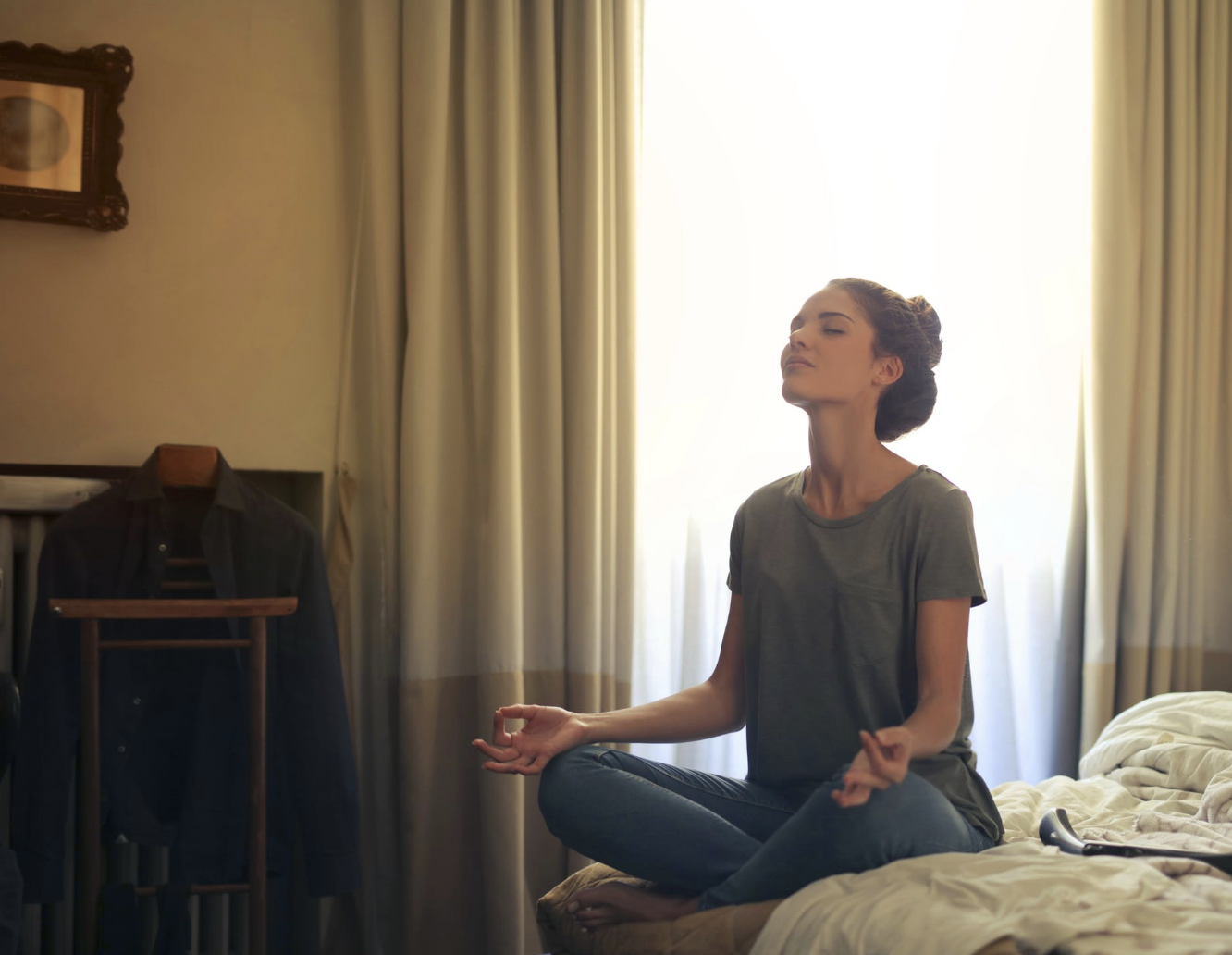Do you feel worried or stressed in these uncertain times? We hope to bring you a touch of relief with mindfulness techniques to help you to feel more calm and centered.

Mindfulness can be therapeutic for your mental health. It is a state of mind achieved by focusing your awareness on the present moment. You calmly notice and accept how you feel, from your thoughts to your bodily sensations. Mindfulness greatly improves your well-being and there are many research-backed benefits too:
- Reductions in stress and psychological distress
- Improvements in stress management
- Reduced anxiety and depression
- Improved emotional regulation and self-control
- Enhanced body satisfaction
- It has been linked to improved cognition, including enhanced visuospatial processing, working memory, executive functioning and attention and focus.
Here are some ways to easily incorporate mindfulness into your daily routine to see immediate benefits. Different things may resonate with different people, so it’s up to you to do what resonates most. Why not try making small changes to your routine towards living a more mindful life.
1. Awareness of breath is your anchor to the present
Bring awareness to your breath as it enters and exits the nostrils. You do not need to be sitting down meditating to be practicing mindfulness, it can be cultivated anytime, including during routine activities, or when you have to wait for something. Use your awareness of breath anytime during the day as an anchor to ground your awareness in the present moment.
2. Slow Down
Try and slow down and savour whatever action you’re engaged with. Remember that life is a journey, not a destination. Deliberate and thoughtful attention can help promote healthy focus and prevent you from feeling overwhelmed.

3. Disconnect from Technology
Keeping phone and computer time in check can help reduce information overload, and set boundaries for screen time. Avoid mobile devices at bedtime.
4. Eat Mindfully
When you eat, take the time to do so without distraction such as TV, computer or newspaper in front of you. Become aware of the flavours and texture of the food.

5. Get Moving
You can tune into bodily sensations and the present moment when walking, practicing yoga, or having a stretch.

6. Follow a Mindfulness Course
There are a number of available apps such as Headspace, MindSpace and Sam Harris’s Waking Up meditation app. The structured practices provided by these can be a great help, particularly to those just starting out on their mindfulness journey. There are also taught programmes available, such as an 8-week Mindfulness-Based Stress Reduction (MBSR) course.
7. Meditate
Put a little time aside to meditate. It is much better to practice this little and regularly than more sporadically for longer stints. Start off small, research has indicated that even 5 minutes of mindfulness meditation practice can yield benefits. Ground your awareness in the feeling of your breath as you inhale and exhale, and on any bodily sensations you may feel. Observe any thoughts and feelings and allow them to pass before you like clouds. If you find your mind has wandered, gently bring your awareness back to the feeling of your breath and bodily sensations without judging yourself. Repeat for your allotted time, which you may wish to increase over time. Practicing in the morning may provide you with a boost for the rest of the day.

8. Make a note of what gives you gratitude
A few times a day, write a few words about things which you feel grateful for. If nature focussed, this is also a means of increasing your connection to nature. The app Presently works well for this.
9. Be in Nature
If you struggle with meditation, taking the time to get into nature appears to effortlessly increase mindfulness, and the increased nature connection you experience in the wake of a psychedelic experience will further boost these benefits. The practice of Japanese Shinrin-Yoku or forest bathing is an accessible active mindfulness based practice. Living a more mindful life is easily accessible to anyone, not just meditation masters or Buddhist monks.

10. Join a psychedelic retreat like Synthesis
Recent research findings show that an experience with truffles or mushrooms containing psilocybin can increase mindfulness in an enduring way, even if not used in the context of a pre-existing meditation practice. However, the benefits you can hope to obtain from using truffles in a safe and supportive retreat setting will be all the more profound if they are used alongside an established mindfulness practice. At Synthesis, we incorporate activities like breathwork sessions and meditation to the retreat.

To see more about our programs, take a look at our retreat pages.
Wishing you strength in bringing these mindfulness techniques into your daily life.












